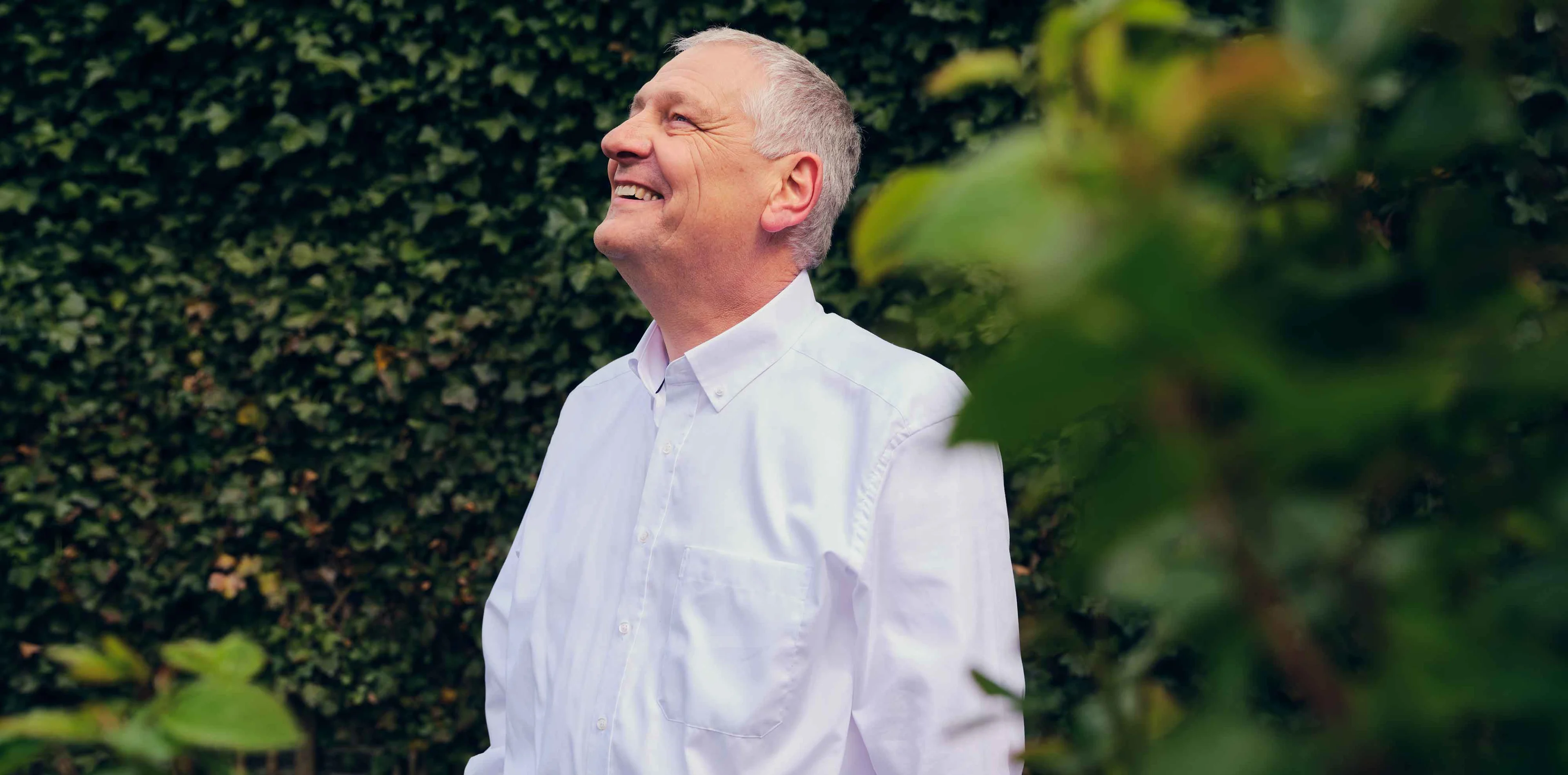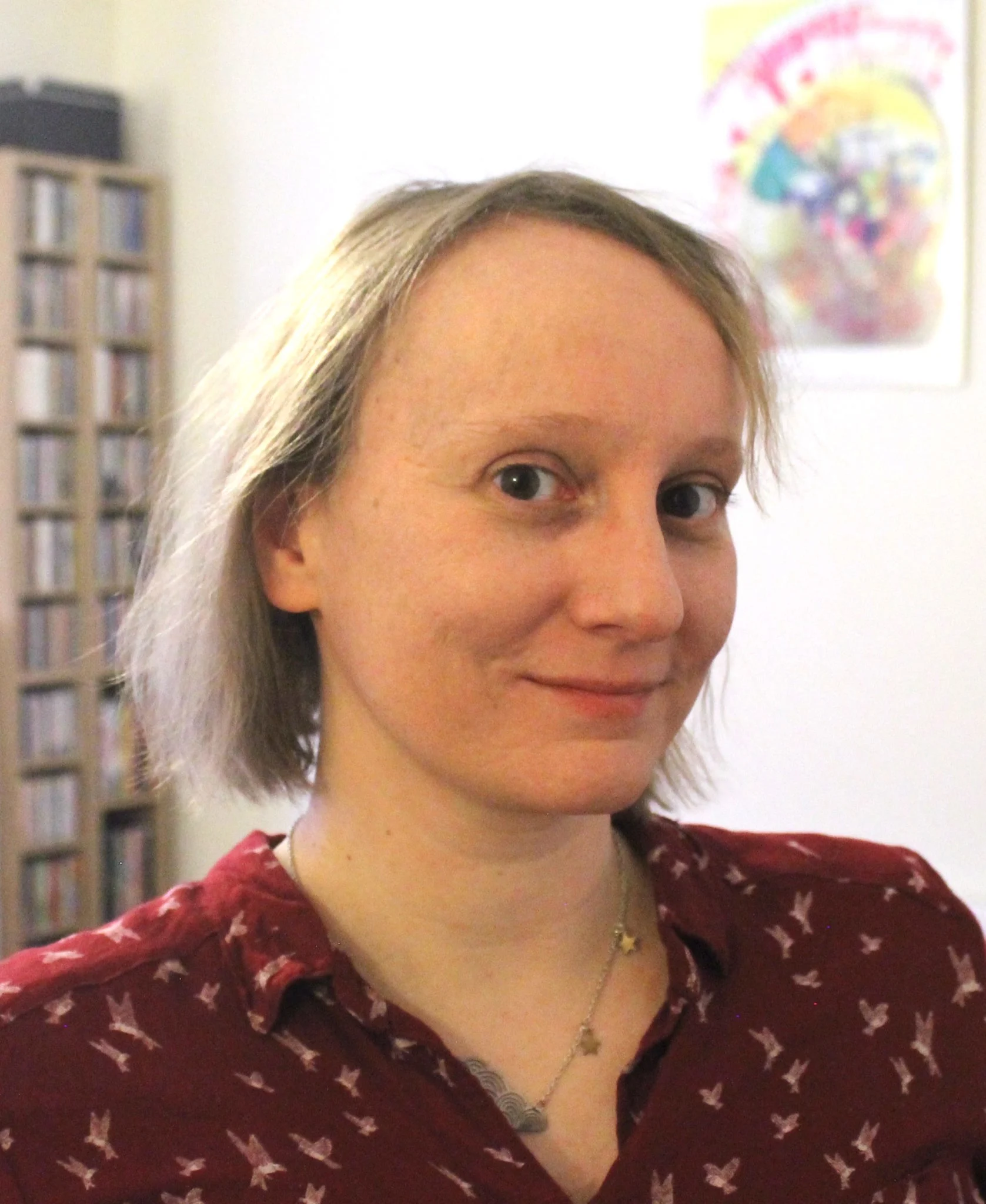
Sustainability
9 minute read
Simplifying complexity: the story of a sustainability changemaker - the brave and the innovative Thomas Müller-Kirschbaum
Thomas Müller-Kirschbaum has been at the forefront of evangelizing for sustainability for decades. During his long career in the plastics industry, he has made every effort to aspire - both privately and in business - for solutions that are effective and easily understood by consumers and companies alike. This is the story of a true innovator, whose deeply personal commitment to sustainability throughout his career has brought about change for a better future. Müller-Kirschbaum’s aspirations and career at Henkel perfectly align with Neste’s vision for the future, making them natural partners in sustainability.

In his first job after finishing a doctorate in physical chemistry, Thomas Müller-Kirschbaum worked as an assistant plant manager for a polyethylene company. He ended each workday with a five-minute bicycle ride from his office to the car park, past the loud rattling pneumatic conveyor system that transported granules used in plastic production. It was the late 1980s and environmental awareness around fossil fuels and greenhouse gases was on the rise, so Müller-Kirschbaum wondered “Will we still be making plastics in this way 30 years from now?”
Now, more than thirty years later, plastics production is starting to change. Even though the end materials are produced using the same processes and production lines, - and even the pneumatic conveyors are still here - Müller-Kirschbaum has seen first-hand how industries are gradually moving toward more sustainable material sources and practices, but also how people’s overall attitudes concerning plastics and the environment have changed over the years. After a few months of cycling past granule transport pipes, he found a new job with Henkel, a chemical and consumer goods company headquartered in Düsseldorf, Germany, where he was the Head of Global Research and Development for Laundry and Home Care products for many years.
When he first joined Henkel, Müller-Kirschbaum was impressed that even at the time, in the late 1980s, they were already thinking about the environment and using 30% plant-based materials in their products.“That was a complete change from the petrochemical world I was in before,” he says. For most of his first years at Henkel, his day-to-day work wasn’t focused on sustainability, but it was always in the back of his mind. Even when he was growing up, he was encouraged to consider caring for the planet as part of his Catholic upbringing, and he embraced those ideals also later in life.
As Müller-Kirschbaum rose through the ranks at Henkel over the years, he got a chance to enact sustainability change within the company. “In 2005 I joined Henkel’s Sustainability Council,” says Müller-Kirschbaum. “Two years later, together with the Head of Corporate Sustainability Management, we set the first sustainability targets for Henkel.” They were just a small team, and, without the usual big board decisions, created a set of guidelines that quickly gained a foothold in the company. “This showed me that even in a big company, if you want to make a change you can do so,” he says. “As long as there's a strong will, you will find a way to do it.”
Simple messages for complex ideas
Müller-Kirschbaum’s first encounter with the technical side of sustainability was as a student at the University of Cologne. He took classes in environmental technologies at the Rheinisch-Westfälische Technische Hochschule Aachen, and learned about technologies like the lambda sensor used for catalytic converters in cars, and about desulphurisation of coal power plants. “That was a huge topic in Germany,” says Müller-Kirschbaum, “especially with the lignite power plants running in the West.”
Two years later, together with the Head of Corporate Sustainability Management, we set the first sustainability targets for Henkel.”
North Rhine-Westphalia, the area of Germany where Müller-Kirschbaum has lived and worked most time of his life, is the industrial region of the country. It’s the home of the steel industry and power plants, and an economically important region. But that also made it one of Europe’s major polluters, which people started becoming more and more aware of in the 1980s. The technologies that Müller-Kirschbaum learned about at university were the first steps toward addressing concerns about pollution and greenhouse gas emissions.
Since then, he has closely followed new advances in environmental solutions. But one of the biggest changes he witnessed wasn’t technological, but rather a major shift in the way people think about the environment. “The intensity, or the depth, is much bigger now.” As an example, he brings up vegetable oils. Whereas he was impressed 30 years ago that Henkel used vegetable oils as the basis for laundry and homeware products, consumers nowadays have a lot more insight in the complexity of sustainability. They’re aware of the interconnectivity of different aspects of climate change, so it has become more challenging to talk about environmental issues.
That means that companies like Henkel could no longer simply state that they replaced petrochemical materials with vegetable oils, particularly if that oil was unsustainably-produced palm oil, for example. “People understand that unsustainably-produced palm oil can also have a negative impact on the climate through deforestation,” says Müller-Kirschbaum. That’s why they’re asking for a lot more information. They want to know how it was sourced, why the choice was made to use palm oil, and how the company is ensuring sustainability.
Providing all the complex layers of sustainability can make the communication around products more complex; therefore, Müller-Kirschbaum thinks that we need to find ways to summarize it into simple messaging. After all, consumers want to make sustainable choices, but when they’re in the store they only have a few seconds to decide whether or not to buy something. “That means that sustainability has to come across in an easy-to-understand message during the purchasing act.”
But if sustainability is so complex, how do we achieve simplicity? That’s one of the challenges Müller-Kirschbaum has been thinking about, and he thinks the solution is a “Circular plastics” or “Circular packaging” label. In an ideal system of sustainable plastics production, some parts of a product may come from mechanically recycled materials, others from chemically recycled and the remainder may be based on bio-based materials. Conveying that message to someone while they’re looking at products on a supermarket shelf can get complicated, says Müller-Kirschbaum. “In the three seconds of the purchasing act, nobody has time to understand a label that says 70% mechanically recycled, 10% chemically recycled, 20% bio-based.”
Instead, he envisions a label that brings it all together in a simple symbol that immediately signals to consumers how sustainable a product is, taking all these different factors into account. Such a system would require cooperation between different industry organizations and NGOs to come to a standardized label. It doesn’t exist yet, but Müller-Kirschbaum thinks we’ll see a label like this within the next five years. It would make sustainable shopping a lot easier for environmentally-conscious consumers.
Working together for a sustainable future
Simple messages aren’t just useful for consumers. At Henkel, Müller-Kirschbaum has also tried to break the sustainability plan down into simple messages by splitting it into smaller goals. The overall goal is to triple the company’s value in relation to the overall environmental footprint over a period of twenty years, from 2010 to 2030. To break that down into annual goals, this meant that every year Henkel’s supply chain was asked to get 3.5% more efficient with their use of water and energy and reduce the amount of waste. But that wasn’t the hardest part.
“It’s not so difficult to convince the supply chain people to save energy,” says Müller-Kirschbaum. After all, saving energy means cutting back on costs as well. “The issue was to convince the business people that the value also had to increase while the footprint was being reduced.” Value in this context included anything from better products and more sales to safer workplace and driving social progress. Increasing all that while using less seemed counterintuitive. The simple solution to creating more value is to scale up everything, but that doesn’t work if the other half of your goal involves using fewer resources. To make it less overwhelming, the goal was broken down into smaller annual steps. Each year the value only had to go up by about 2%. That was more achievable, but with fluctuating markets it hasn’t always been easy: some years the value of the euro made it extra hard to reach a 2% increase. Now that he has retired from his position at Henkel, Müller-Kirschbaum continues to act on advisory boards where he offers advice based on his experience. One of the messages he often emphasizes is that it can be difficult to push through a sustainability initiative within a large organization.
If somebody goes to a gym, he or she knows that training the muscles is something that is not only connected with joy and fun, but it's also connected with pain. But people know it's healthy.
“Even though sustainability is something that everyone wants to aim for, there is still the pain of distributing the duties and of the price tags that come with sustainability programs.” His advice for how to deal with these challenges is simple: “Think of it as going to the gym.” He explains that it might hurt a bit before you start to see the effects, “but people know it's healthy.”
Sustainability plans, such as Henkel’s, can contribute to the global efforts to reduce our carbon footprint and create a healthier planet. Industry collaborations such as the Renewable Carbon Initiative (RCI), of which both Henkel and Neste are founding members, can help support and speed up these efforts. Creating a sustainable planet is a massive task, but every small step taken by individuals and organizations is a step in the right direction. Müller-Kirschbaum likens it to the building of the cathedral in Cologne. “The people who laid the foundation of the cathedral in 1248 knew that they would not witness the laying of the last stone.” But it’s worth being part of such a large project, whether that’s building a cathedral or solving climate challenges. “I feel as if I’m somewhere in the middle,” he says about his role in creating a sustainable planet. “It already started and there are still more plans that need to be developed, but the final plan drives you forward.”
I have this vision that we’re on the right track.
That collective plan to create a more sustainable planet is what keeps Müller-Kirschbaum motivated to continue working on sustainability projects. Even in his personal life, he tries to make a difference. His office is just 800 meters from home, so he can walk, and he and his family have been trying to reduce their carbon footprint by carefully considering their purchases. They’re small steps but he sees all of this as pieces of the larger sustainability goal, and he feels confident about the future. “It will take much longer than my lifetime,” he says, but adds “I have this vision that we’re on the right track.”
Credits: Dr. Eva Amsen, a science writer and communicator whose work has appeared on Forbes, Nautilus and The Scientist. Twitter
Picture: Per Schorn
